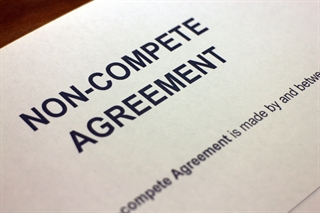It’s a fairly familiar scenario: A company sells its distribution business through an agreement that includes both non-compete and purchase requirements provisions. The relationship goes south after the deal, with the seller alleging that the buyer has breached the agreement by failing to order sufficient product under the purchase requirements provision. The buyer denies any breach and, followed by its successor-in-interest, seeks to enforce the non-compete, warning the seller’s customers that the seller is subject to a non-compete agreement.
 Does the successor-in-interest’s insurer have a duty to defend its insured against a subsequent suit for tortious interference? In a case of first impression, Great Lakes Beverages, LLC v. Wochinski, the Wisconsin Court of Appeals determined the insurer does not.
Does the successor-in-interest’s insurer have a duty to defend its insured against a subsequent suit for tortious interference? In a case of first impression, Great Lakes Beverages, LLC v. Wochinski, the Wisconsin Court of Appeals determined the insurer does not.
Keith Wochinski worked in the beverage industry, manufacturing specialty sodas and juices and selling those along with national brand beverages. In 2009, he sold his beverage distribution business to K-Way Systems. Wochinski agreed as part of the sale not to compete with K-Way for a specified period of time and, in turn, K-Way agreed to purchase beverages from Wochinski to sell to its customers.
K-Way did not live up to its end of the bargain – ordering only a small amount of product, failing to pay Wochinski for that product and then halting all orders entirely. Wochinski informed K-Way that it was in breach and asserted that the entire agreement was therefore void. Wochinski returned to the beverage distribution industry, and K-Way’s successor-in-interest, GLB Acquisition, LLC (GLBA), filed suit to enforce the non-compete agreement. Wochinski counterclaimed, ultimately alleging that GLBA had tortuously interfered with his contractual relationships by harassing and threatening him and telling actual and prospective customers that the non-compete was in effect when it was not.
Asked whether its liability insurer, AMCO Insurance Company, had a duty to defend GLBA, the court of appeals assumed that AMCO’s policies provided an initial grant of coverage for personal and advertising injury. The court held, however, that the policies’ exclusion for claims “arising out of breach of contract” ultimately barred coverage.
Observing that no prior published opinion interpreted the breach of contract exclusion in question, the court of appeals rejected Wochinski’s argument that the exclusion only applied to claims seeking damages for breach of a contract directly between the plaintiff and the insured. It noted that Wisconsin courts broadly construe the phrase “arising out of” to require only some causal relationship between the injury and the uncovered event. Because Wochinski had to prove he validly rescinded the purchase agreement in response to K-Way’s breach in order to succeed on his tortious interference claim against GLBA, that claim flowed from K-Way’s alleged breach and coverage for it was excluded under AMCO’s policy.



 />i
/>i

